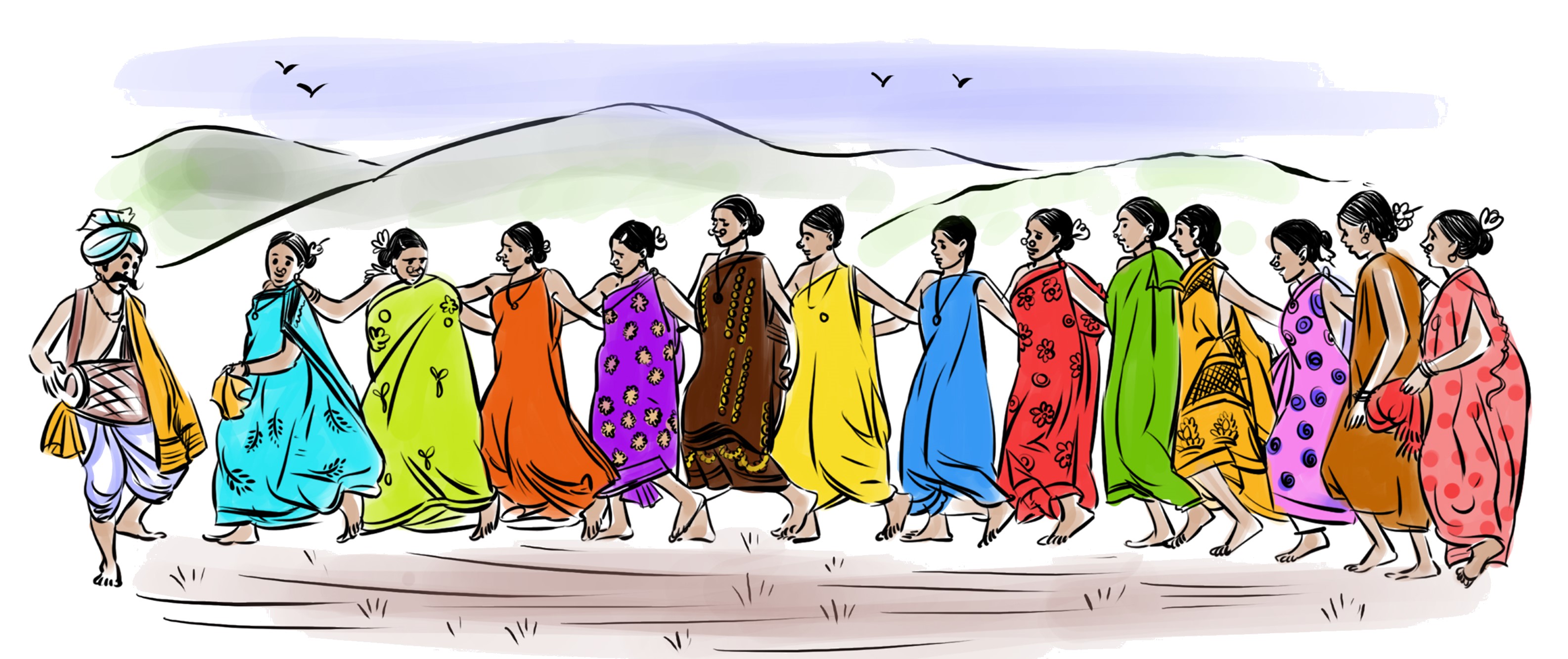Revitalising Rainfed Agriculture Network (RRA Network)
Focal Areas and and Policy Discussions
Millets in Public Diets Contributing to Mitigate Malnutrition
◼ Encouraging large scale consumption of millets by their inclusion under PDS.
◼ Inclusion of millets in ICDS for enriching nutritional status of women & children.
Decentralized Support Services for Enabling Localized Millet Food Systems
◼ Evolving support systems for decentralized millet processing.
◼ Millet markets and local economies: Supporting market engagement through farmers' groups supported by policies.
Millets in Agroecology and Climate Change
◼ Strengthening agrobiodiversity of millets: Community-managed millet seed systems.
◼ Breaking the barriers in productivity of millets through sustainable intensification and multi-cropping systems.


Millets grown in a wide variety of soils and climates, used to be the principle staple for people across India. For farmers in rainfed areas, millet cultivation addresses several key issues simultaneously - crop diversification, water conservation, and climate resilience. Millets are also integral to the local traditions and rituals of the communities in rainfed geographies..
Though demeaned as “the poor man’s food” and relegated, until recently, to an inferior status, millets survived discriminatory, centralized policies (that of the Green Revolution and food security). Thanks to the indigenous communities who kept millet cultivation and consumption alive, decades of determined efforts by Civil Society Organisations and of popular consumer discourses millets are regaining their space.
Thanks to India’s efforts, the United Nation has declared 2023 as the “International Year of Millets”. While we celebrate millets gaining international attention, we also need to make millet-based diets affordable and accessible to people at large rather than urban and export markets alone!.
Bringing millets back “on farms and on plates”, at nation-wide scale, can improve resilience to climate change, reduce water shortages and address nutritional challenges. Millets can regain their status in production and consumption with favorable public policies and investments. Introducing unpolished millets locally in ICDS, Mid-day meals, and PDS replacing a proportion of rice/ wheat can stimulate demand, production and investments in millet value chains.
Almost every district in the country can produce, process and consume millets. A proportional shift to millets can stimulate local economies and cut down long-food supply chains.
The People’s Convention on Millets for Millions is the first step in making IYOM as an inclusive agenda for people and ecosystems.
It intends to collaboratively chart pathways for civil society, research institutions, enterprises and for the government to bring back millets into localized food systems.
By sharing of successful experiences, cross learning and networking, RRA Network aims to create an enabling environment for reclaiming millets as the people’s food to benefit millions of people: farmers, wage workers, women, children, entrepreneurs and consumers.
The People’s Convention will also celebrate the rich cultural diversity associated with millets by recognizing their centrality in local food systems.
The Revitalising Rainfed Agriculture Network (RRA Network) invites partnerships and collaborations across the country to own, support, convene the People’s Convention.
Celebration of the Rich Cultural Traditions and Diversity of Millets across the country
Traditional Songs, Dance and Seed Display associated with millets from various regions
Taste Rich Diverse Millet Food and Sale of millet based products

Join us in convening the event please contact
Revitalising Rainfed Agriculture Network (RRA Network) Hub
Plot No. 685 & 686, Street No. 12, Lakshmi Narasimha Colony, Nagole
Hyderabad - 500 068, Telangana, India
Email: secretariat@rainfedindia.org | Website: www.rainfedindia.org
Revitalising Rainfed Agriculture Network (RRA Network) Hub
Plot No. 685 & 686, Street No. 12, Lakshmi Narasimha Colony, Nagole
Hyderabad - 500 068, Telangana, India
Email: secretariat@rainfedindia.org | Website: www.rainfedindia.org